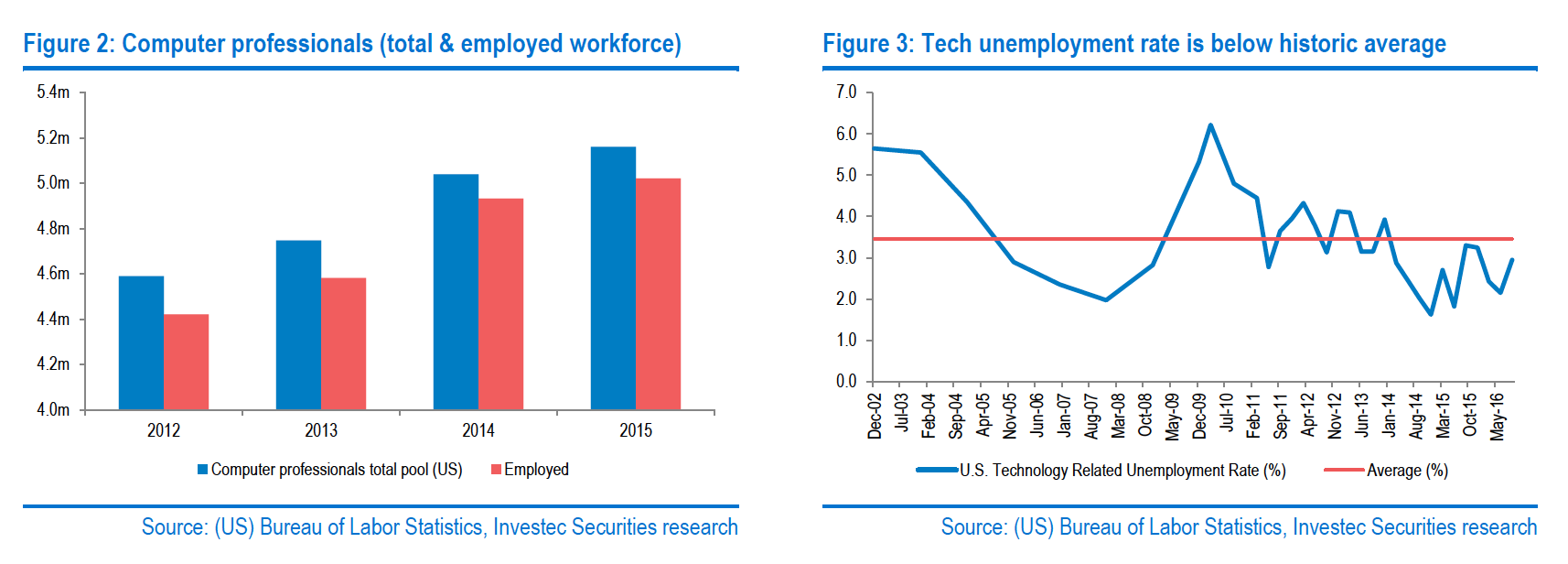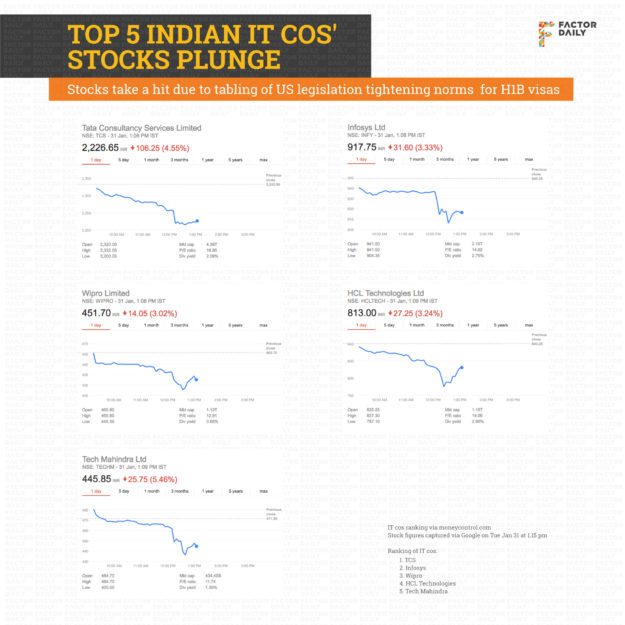Stocks of Indian tech firms have fallen sharply. And there are fears that things could get worse for Indian tech firms under the Trump administration.
So what’s really going on? Here’s a simple explainer.
1. As part of reforming immigration laws, the United States is set to revamp the H-1B program. A new legislation has been tabled in the US House of Representatives.
2. Among other things, the High-Skilled Integrity and Fairness Act of 2017, proposes to increase the minimum wages for H-1B workers to $130,000. That’s more than double the current minimum wage ($60,000) introduced back in 1989.
3. Most Indian tech companies send employees to the United States on this visa. This includes companies like Infosys, Wipro, TCS, HCL Technologies and Tech Mahindra. This explains why their stock prices fell sharply.
4. Nearly 85,000 H-1B visas are given out every year. The demand usually far outstrips supply. Indian companies get most of these visas; for instance, in 2014 70% of H1-B visas went to Indian techies. There are an estimated 350,000 Indian engineers in the United States currently on H-1B visas.
5. Until recently, Indian IT used to shrug these threats off. But this time it is serious because key people in Donald Trump’s government are pro reforms and Republicans have a majority in both House and Senate, so passing the legislation will be quicker.
6. So how will this impact Indian IT? According to a report by Investec, the margin impact can be the following:

That’s a hit of more than 2.3% on gross margins!
7. The irony of it all? US is short of nearly 50,000 tech workers annually, as per Investec. Also, tech unemployment currently is below the historic average.

8. Is there a silver lining? Yes. About 20% of the annual H1B allocation will be set aside for startup employers with fewer than 50 workers. This will help them hire high-skilled talent from countries like India.
Subscribe to FactorDaily
Our daily brief keeps thousands of readers ahead of the curve. More signals, less noise.
To get more stories like this on email, click here and subscribe to our daily brief.
Stocks graphic: Nikhil Raj P/ FactorDaily Disclosure: FactorDaily is owned by SourceCode Media, which counts Accel Partners, Blume Ventures and Vijay Shekhar Sharma among its investors. Accel Partners is an early investor in Flipkart. Vijay Shekhar Sharma is the founder of Paytm. None of FactorDaily’s investors have any influence on its reporting about India’s technology and startup ecosystem.






